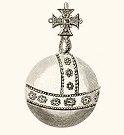“Doubtless ye shall not come into the land, concerning which I sware to make you dwell therein, …” (Numbers 14;30). He swore, but is not keeping his promise. Why? All of the spies (except Caleb) warn about an invincible host in Canaan, and the people worry that they’ll be killed, and their children enslaved. This really pisses off the Lord, and he’s ready to wipe them out, and start from scratch with Moses. After a lot of flattery and begging by Moses, He agrees to not kill the all, but instead make them wander the desert the rest of their lives, never to see the Promised Land. So much for promises.
This is not to say that the Israelites were without blame. When Moses tried to talk them out of going back to Egypt, they started discussing taking him outside and stoning him.
The next chapter, we get some reminders about rules. More information about types of offerings, and punishments for different disobeyings. And a little interlude where we stone a man for gathering wood on the sabbath. Because there is nothing worse than breaking the sabbath. I am the Lord your God.
Tomorrow: Numbers 16-17.
